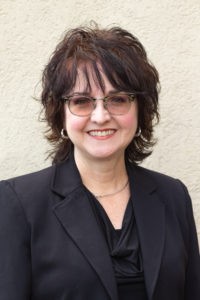Americans who minister to refugees say they are feeling both frustrated and determined since the Trump administration announced further reduction in resettlements for the coming year.
Last year’s refugee cap was an already low 30,000. The White House last month announced it will drop to 18,000 in 2020.

Marc and Kim Wyatt
“Of course, we are very disappointed,” said Marc Wyatt, Cooperative Baptist Fellowship field personnel who, with wife Kim, coordinates church-based refugee ministries in North Carolina’s Research Triangle and beyond.
Wyatt and other Christians who welcome and support refugees say they aren’t surprised by the new cap and that, while frustrated, are already seeking ways to re-orient their hospitality ministries.
“It causes me to wonder: so how do the people of God respond when we know these needs are out there?” said Mark Mofield, the senior pastor at Temple Baptist Church in Durham, North Carolina.
The White House decision was announced just weeks after the congregation hosted its first refugee family. Given the new federal cap, Mofield said the church is open to new ideas on how to use the house.
“How can we best respond in light of whatever the law or the circumstances are going to be?” he said.
That’s an increasingly common response among individuals and congregations who serve refugees, Wyatt said.
“We have seen a multiplication of responses from churches and Welcome Houses who are becoming aware of needs in their communities,” Wyatt said.
New rules for refugees
Meanwhile, the plight of refugees around the world is appalling.
The United Nations reported that the world’s refugee population is “the highest ever seen” at close to 26 million by the end of 2018.
Refugees are people who have been forced to flee their nation to escape natural disaster, war or persecution. They come from around the globe and are heavily screened by the nations that give them refuge.
Even so, President Trump has repeatedly reduced the numbers that can be admitted into the United States. He also set some new conditions on resettlement recently.

“At President Trump’s direction, refugees will be resettled in jurisdictions where both State and local governments consent to receive them,” according to a White House statement.
The traditional path to citizenship that resettlement meant in the U.S. also seemed to be questioned.
“The primary goal of our refugee policy is to enable refugees to ultimately return home, where they can help rebuild their communities – which also supports our foreign policy interests,” the White House said.
“Frankly, it feels political,” Wyatt said, reflecting a widespread concern that the nation’s refugee policies are being affected by immigrant and asylum issues at the U.S.-Mexico border.
The White House announcement said the U.S. would receive 350,000 asylum seekers in 2020.
‘I think we can do more’
The situation already is bringing a lot of grief to refugees in the U.S. and abroad, said Cindy Hood, director of Welcome House Knoxville, a non-profit hospitality ministry in East Tennessee that partners with the Wyatts and Tennessee CBF.

Cindy Hood
“They are grieving. It’s really hard to come to a new country with the language hurdles and a culture that’s so different,” she said.
Newly arrived refugees are still reeling from the loss of their homes and, in many cases, separation from family members left behind in refugee camps. Planned reunions with family, already slow in coming, are now very much in doubt.
“They’re really in survival mode,” Hood said. “They’re just trying to get into some kind of normal.”
Welcome House – like seven others the Wyatts work with in North Carolina – may have to widen the scope of who use its temporary residence.
“We don’t know,” she said. “But that’s OK because they don’t know either – a refugee’s life is not knowing.”
Resettlement agencies that work with the United Nations and U.S. State Department to place refugees in communities also are in a wait-and-see mode.
They include organization’s like Church World Service, World Relief Corp. and the U.S. Committee for Refugee Services.
“There will definitely be an impact on everyone,” said Ali Al Sudani, senior vice president for programs and chief of staff of Interfaith Ministries for Greater Houston, one of five resettlement agencies in that city.

Ali Al Sudani
The lowering caps are causing personal tragedies on a mass scale for refugees in the U.S. and overseas, Al Sudani said. But the nation’s character may also be impacted.
“We need to ask ourselves: Is this good enough for America?” he said. “As Americans, did we do enough when the need was highest?”
The dwindling refugee cap is especially difficult given the nation’s previous role as a leader in resettlement, he added.
“I think we can do more.”
‘Not wringing their hands’
The congregation at Temple Baptist Church is eager to do more after their experience with the Karen Christians from Burma – whose official name is Myanmar – earlier this year, Mofield said.

Mark Mofield
They stayed more than a month in a remodeled home owned by the church and were visited often by members of the congregation bearing meals, fellowship and grocery store gift cards, Mofield said. Many others donated funds for gift cards to supplement the family’s meager budget.
The experience opened everyone’s eyes to the harrowing and heartbreaking experiences of this family and of all refugees, the pastor said.
The prospect of missing out on further opportunities to help refugees isn’t sitting well, he added.
“We found this a very rewarding opportunity on a lot of levels and to not have the opportunity to serve in that way is a tragedy.”
Mofield said other ways of helping refugees in camps overseas may need to be considered.
“It’s not right to say they are on the other side of the globe so that’s their problem,” he said.
Wyatt said there is an uptick in interest in ways to advocate for refugees and their needs.
What is decidedly absent, he added, is a defeatist attitude or smoldering resentment.
“The severity of policies is calling people to have a heart for their neighbor and not wringing their hands and being mad,” Wyatt said.
Related story:
Evangelical leader: Trump’s refugee limit “dramatic and heartbreaking”
